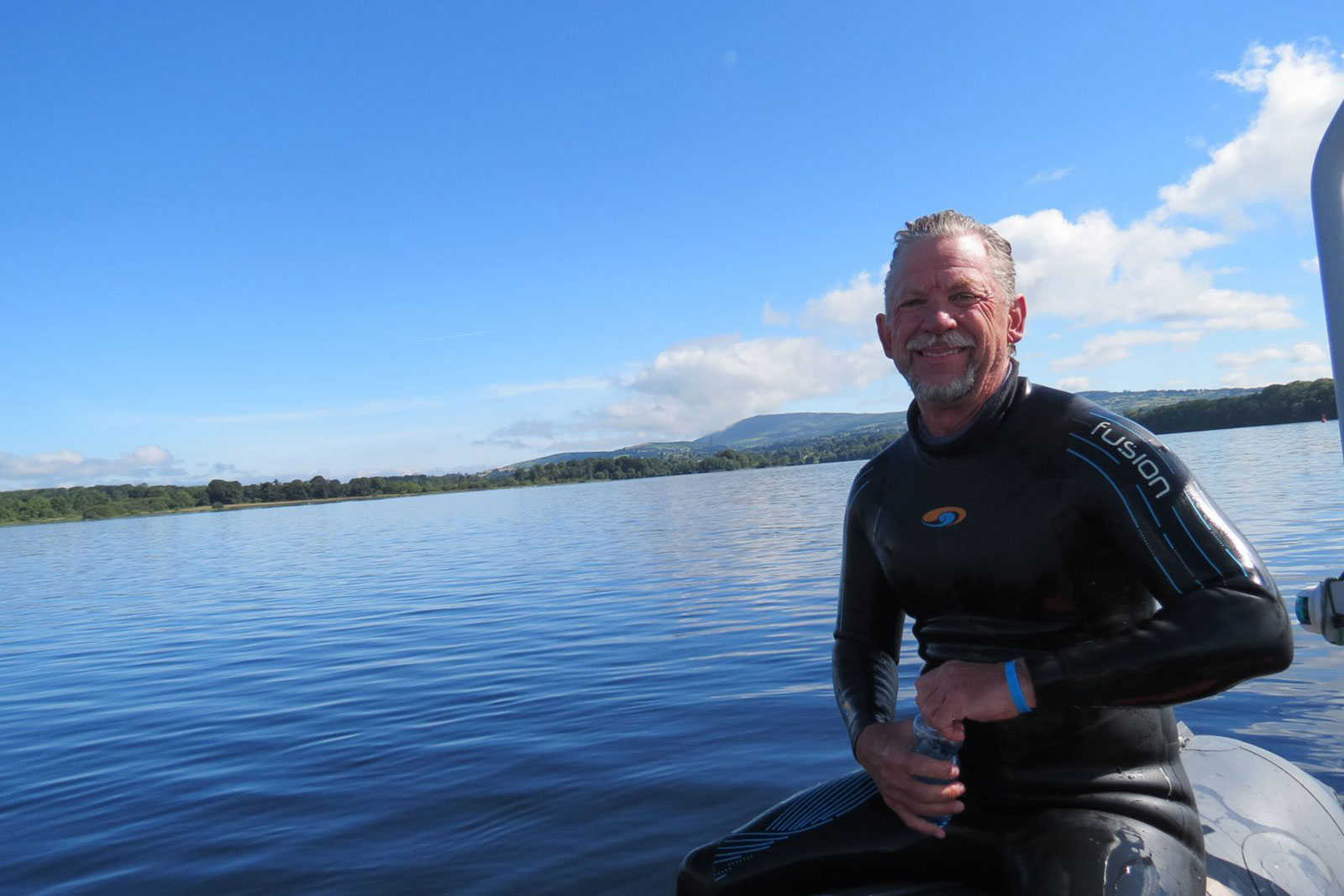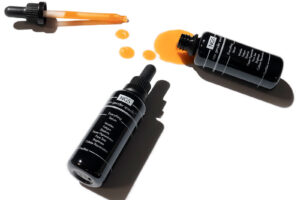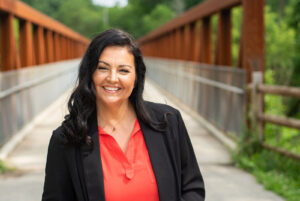In 2014 when Dean Hall informed his oncologist of his goal to be the first active cancer patient to swim all 187 miles of the Willamette River in Oregon, he was met with an incredulous “Hell no!” But Hall wasn’t willing to accept that answer.
“I thought, ‘Well, I’m gonna die anyway. What am I gonna die doing. Watching ‘Wheel of Fortune?’” Hall exclaims, laughing. “I wasn’t gonna go out like that.” The 59-year-old two-time cancer warrior had dealt with the sudden loss of his first wife, Mary, from an inoperable brain tumor nearly four years prior and was determined to leave behind a legacy of courage for their daughter. So he swam.
Hall attributes his unconventional approach to his second leukemia diagnosis to his childhood roots. A native Oregonian, Hall is the second son of two mountain climbers who he describes as outdoorsy go-getters. He fondly recalls climbing Mount Hood for the first time at age nine. He and his father were ascending the 11,000 foot tall giant when his father asked, “Are you tired?” Nine-year-old Hall admitted he was, and his father said, “Good! That’ll teach you!” His parents’ outlook was useful for Hall when faced with his cancer diagnoses later in life. “I learned very early on how to dig down deep by doing something physically strenuous,” says Hall. “It’s kind of my heritage through environment and genetics.”
Fittingly, Hall was an active soccer player in his adolescence and secured a scholarship for university in Kansas. While Hall initially felt as though he’d been dropped on a different planet coming from the rolling hills of Oregon to the vast flat fields of Kansas, he met his first wife and put himself “in exile for love.” He stayed in the Sunflower state for 33 years, operating as a therapist under his own thriving private practice while dealing with his first leukemia diagnosis. After Mary’s death in 2010, Hall received his second leukemia diagnosis a year later and alongside it came lymphoma. Between the immense grief of losing his wife and his worsening health, Hall gave up his private practice and relocated to a small duplex in the Portland suburbs.
Even for a patient with an incurable disease, there is always hope.
The move was difficult. Gone for more than three decades, Hall quickly realized he was unable to pick up where he left off in his past Oregonian life. His health was also deteriorating—at over 6 feet tall, Hall weighed less than 160 pounds and his lymph nodes around his neck and jawline were completely swollen. He didn’t look like himself, he didn’t feel like himself and he struggled to find any sense of purpose in life.
One day shortly after his move, Hall came across a journal he kept at 12 years old. “On the first page, I had written, ‘When I become an adult, I’m gonna climb Mount Everest and swim the English Channel,’” Hall recalls. Realistically, Hall could not afford to climb Mount Everest (a summit that costs anywhere from $28,000 to $85,000 and poses a high health risk for even well-seasoned climbers). The English Channel, however, felt attainable. Hall latched on to the possibility. “Every time I’d think about it, my heart would just leap,” says Hall.
A substantial reader, he cites Viktor Frankl’s “Man’s Search for Meaning,” a book exploring human resiliency and ability in overcoming great obstacles, to explain his growing obsession with the English Channel swim. “[Frankl’s] theory was that if you have a passionate purpose that you can hold tightly to, that gives you your best chance to not only survive but thrive,” Hall says.
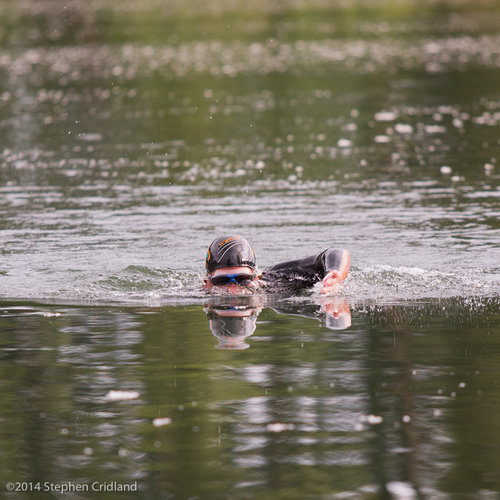
Hall ultimately decided the English Channel was not personal enough. After some contemplation, he looked into the Willamette River in Oregon, an immense stretch of water flowing between the Oregon Coast and the Cascades, beginning in the mountains and twisting throughout the state while bypassing the major cities of Portland, Salem and Eugene. Hall grew up four blocks from the river and knew it as “Mama River.” When he discovered that nobody had ever swum the entire length, his decision was made.
In 2014, despite his doctors’ skepticism, Hall began training. The first time he entered a pool and kicked off the wall, he immediately felt at peace. “I felt like myself since everything started,” says Hall. “I promised myself I’d do 10 laps, and it took me 70 minutes to do 11 laps. But even so, I felt alive. I felt like me.”
If I can do it, anyone can. What’s extraordinary about my story is that I’m ordinary.
Hall partnered with the Leukemia and Lymphoma Society, planning to end his swim around late June of 2014 when its annual fundraising gala would take place. With a sponsor secured and his own father, who was 79 years old and facing his own cancer diagnosis, serving as the designated kayaker, Hall swam 187 miles in 22 days in 40-degree water. “Being in the cold water for so long for so many days helped me enter a meditative state where I opened up and felt what I had been scared to feel,” says Hall. “I worked through a lot of trauma.”
After Hall finished his swim of Willamette, he received a blood test. Doctors couldn’t find any trace of his chronic lymphocytic leukemia. They had never seen anything like it and told Hall if they hadn’t diagnosed him firsthand, they would have believed he had been misdiagnosed.
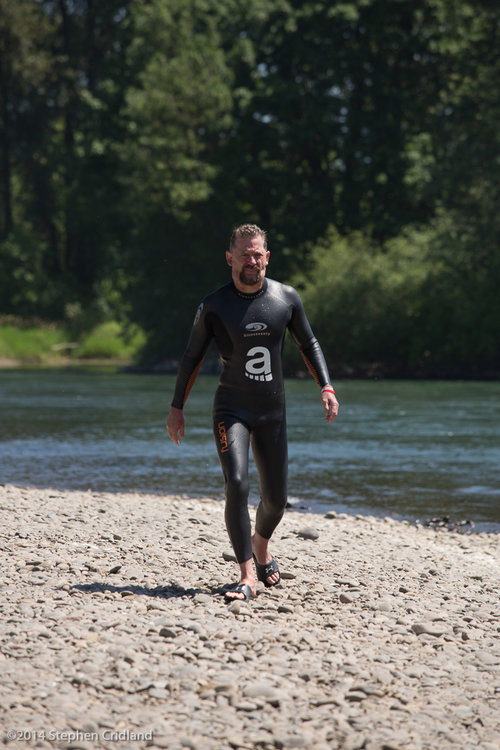
“I was just following a dream,” says Hall. “But by following that dream—and I believe this isn’t unique to me—we do what we are supposed to do, meet who we are supposed to meet and be where we are supposed to be. If I can do it, anyone can. What’s extraordinary about my story is that I’m ordinary.”
These days, Hall has resumed practicing as a family and marriage therapist and offers “comeback coaching” with his second wife, a personal trainer. The coaching helps people who have encountered trauma, tragedy or a life-changing event through “doing and discipline” based on Hall’s firsthand experience of strength and resiliency within the human spirit. Hall turns 60 this year, but with an enthusiastic “age is just a number” mindset, he isn’t stepping away from big swims any time soon. Recently, he was the first person to complete a River Shannon swim in Ireland in 2017 and he has two more swims currently in the planning stages. “I’ve gone from cancer patient to cancer survivor to cancer thriver to what I call a ‘cancer adventurer,’” says Hall. “My plan is to keep swimming until I can’t swim anymore.”

